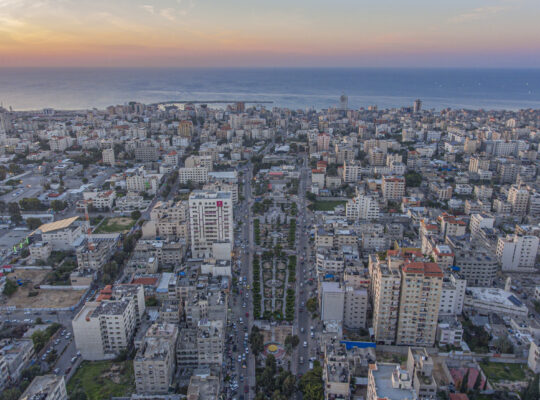Unlock the Editor’s Digest for free
Roula Khalaf, Editor of the FT, selects her favourite stories in this weekly newsletter.
Brussels is stepping up its efforts to conclude a broad economic support agreement with Egypt, as the EU grows increasingly nervous about the Israel-Hamas war potentially escalating into a regional conflict and a new refugee crisis erupting.
Israel is widely believed to be preparing for a land offensive on Gaza, home to 2.3mn Palestinians, after two weeks of bombardment in retaliation for the October 7 attack by Hamas militants. Egypt, which borders Gaza and controls the only non-Israeli crossing into the strip, has accused Israel of trying to force Palestinians into its territory.
The situation has sparked a flurry of discussions on a proposed EU-Egypt agreement, officials told the Financial Times, including talks this weekend in Cairo with senior European Commission representatives.
Egypt is a regional linchpin and already works closely with Brussels on migration management. But it is overburdened with debt and has been in the grip of a severe foreign currency crunch even before the war erupted on its eastern borders, raising concerns for its medium-term stability and its ability to manage its 100mn population.
The commission’s work on the agreement has been given informal approval by member state representatives. It will not specifically link EU cash to Egypt’s commitment to prevent any onward migration to Europe or a possible influx of Palestinians, said people involved in the discussions.
Egyptian authorities have been adamant not to open their border to Palestinians fleeing from Gaza and President Abdel Fattah al-Sisi has repeatedly rejected the idea of Israel attempting to displace the strip’s 2.3mn inhabitants to the Sinai peninsula. Sisi and Jordan’s King Abdullah II on Saturday harshly condemned Israel’s bombardments of Gaza, which have killed 5,087 people, according to Palestinian authorities, amid mounting concerns the Israel-Hamas war will trigger a broader regional conflict.
Instead of focusing only on migration, the EU agreement with Egypt will seek to provide financial support to projects aimed at creating employment and helping the country’s energy transition, the people said, to help prop up its economy and indirectly avoid mass migration to Europe. Detailed information on the agreement, including the overall cost and how it would be funded, has not been made public.
“The issue here is stabilising the country,” said one of the people. “[Egypt] is doing a good job with migration but is facing economic headwinds. This is about shoring up.”
When asked about the agreement, a spokesperson for the commission pointed to a comment by vice-president Margaritis Schinas to reporters last week: “We need to engage actively with Egypt to make sure that Egypt gets all the backing they merit for their very important role in the region as a transit country.”
Leaders and senior officials from Europe, the Middle East and Africa met in Cairo this weekend to discuss the Israel-Hamas conflict and the deteriorating humanitarian situation in the Gaza Strip, which is controlled by the Palestinian militant faction. Schinas represented the commission and the Egypt-EU agreement was discussed on the sidelines, said one person briefed on the matter.
EU ministers for home affairs also discussed co-operation with third countries on migration on Thursday, and encouraged the European Commission to proceed in its talks with Cairo, the people said.
Negotiations with Egypt have been going on for months, but the situation in Gaza has added new urgency to the matter.
The EU, which is already grappling with the highest level of arrivals since 2015, is fearful that any jump in migration from the Middle East and Africa could further incense far right sentiment in countries such as Italy and Germany.
Italy is particularly frustrated at the high number of people crossing the Mediterranean from Tunisia, despite the bloc’s recent deal on stemming Europe-bound migrants in exchange for economic support, which has been torpedoed by Tunis’ reluctance to accept the money.
Still, officials said the agreement with Tunis could be used as a model for engaging with Cairo, as it not only encompasses funding for border control but also economic support, unlike the EU’s 2016 deal with Turkey which focused only on migration. That agreement, struck at the height of a crisis that brought more than 1mn people mostly from war-torn Syria to Europe via Turkey, secured €6bn in total for Ankara in exchange for it clamping down on Europe-bound migration.
Source link



